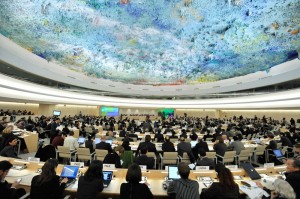
SPW Newsletter’s 13 – author’s profiles
Maria José Rosado Sociologist. Teacher at the Pontifical Catholic University of São Paulo. She founded the Brazilian NGO Catholics for Free Choice. Her field of

As to more fully grab what is happening in Brazil
Read the new IDS Working Paper The Changing Faces of Citizen Action: A Mapping Study through an ‘Unruly’ Lens, which speaks of Brazilian contemporary experience of citizenship struggles.

International Day Against Homophobia and Transphobia (IDAHO) 2013
May 17th is the International Day Against Homophobia and Transphobia (IDAHO). In 2013, some 100 countries have reported activities to be held in remembrance of the Day and of the victims of homophobia and transphobia. We selected some of the amazing initiatives, which you can see here and get inspired to take part in this movement.

Transcription of the Brazilian NGOs original note
Read the “Transcription of the Brazilian NGOs original note,” with concerns on the ordinance published by the Ministry of Health of that allows states and municipalities to use, for “general health purposes,” those funds that had been originally transferred by the Union for the exclusive use of AIDS programs, but were not used until december 2011.

SPW Newsletter N.12 – October, 2012
SPW Newsletter No.12 aims to analyze how sexuality matters are debated in international human rights bodies, specifically within the recently reformed Inter-American Human Rights System and the United Nations Human Rights Council (UN HRC). In the case of UN HRC, this issue of the SPW Newsletter looks closely at the second round of Universal Periodical Review (UPR) of India and Brazil, held in May 2012. Our main goal was to explore how two of the so-called emerging powers have responded to the UPR process, if sexual and reproductive rights issues have or have not been addressed in these reviews, and how the Indian and Brazilian states have or have not reacted to recommendations made in relation to these topics. These brief analytical exercises provide interesting insights on the merits and limits of the UPR processes, as well the challenges implied in engaging with and monitoring these reviews.
Sexual and reproductive rights at the 2012 Universal Periodic Review of Brazil
Read “INTRODUCTION: Sexual and reproductive rights at the 2012 Universal Periodic Review of Brazil”, written for the SPW Newsletter N. 12, based on analysis of Magaly Pazello, from EMERGE-Communication and Emergence Research Centre and Women’s Networking Support Programme of the Association for Progressive Communications (APC).

Interview: Camila Asano
For the Newsletter N. 12, SPW interviewed Camila Asano, Coordinator of Foreign Policy and Human Rights at Conectas Human Rights, who participated of the second round of the Universal Periodical Review (UPR) of Brazil, at the UN Human Rights Council (HRC), in Geneva, in May 2012. In this interview, Ms. Asano analyzed this mechanism for the human rights, explaining how this process works and highlighting recommendations to Brazil, challenges and perspectives. Read more.

The Inter-American Human Rights System is under threat: Implications for the Sexuality and Human Rights Agenda
Read “The Inter-American Human Rights System is under threat: Implications for the Sexuality and Human Rights Agenda”, written by Marcelo Ferreyra, Latin America and Caribbean Coordinator at Global Initiative for Sexuality and Human Rights – Heartland Alliance for Human Needs & Human Rights, for the SPW Newsletter N. 12.

Gender Identity Law in Argentina
Argentina: On April 24, 2012 the Senate Committees on General Legislation and on Population and Development signed in Buenos Aires an agreement that authorizes the discussion on the Gender Identity Law at the Argentine Senate to proceed. Read more.

SPW Newsletter N.11 – March, 2012
Starting with the issue No. 11, SPW Newsletters no longer provide detailed links to posted material, as they will have already been circulated through the announcements of new website postings. The newsletter will mainly focus on one or two pieces of substantive analysis addressing one key debate and, eventually, one key event that we consider to be have been critical in the global sexual politics landscape in the period immediately preceding the publication. Partners and collaborators are invited to share their views on these topics and the Newsletter No 11 is devoted to two key topics: the ongoing debate around the validity of aid conditionality as an instrument to protect LGBT rights and the current state of affairs of abortion reform in Uruguay. Good reading!

